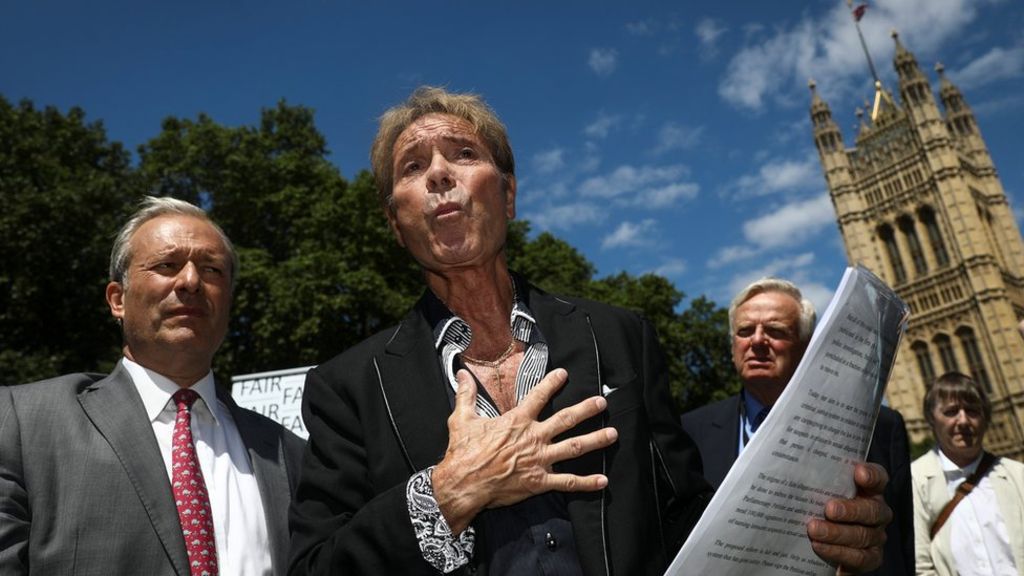A petition aimed at keeping those suspected of sexual offences anonymous until they are charged has been launched. The campaign, spearheaded by Falsely Accused Individuals for Reform (FAIR), is backed by celebrities including Sir Cliff Richard and DJ Paul Gambaccini.
Launching the petition, Sir Cliff argued for a ‘re-balancing of the legal system’. Five years after his home was raided in relation to a sexual assault allegation for which he was never arrested, he described how his reputation had been left ‘in tatters’. ‘When you know you didn’t do it,’ he said, ‘you feel you’re in a hole you can’t get out of.’ In July 2018, the BBC was ordered to pay £210,000 in damages in a privacy case brought against them for their coverage of the raid.
FAIR is an initiative led by Daniel Janner QC, whose late father Lord Janner was the subject of 22 sexual offences charges but was deemed unfit to stand trial. If FAIR’s petition obtains 100,000 signatures, Parliament will consider debating the topic. At the time of writing, the petition had gained the support of over 11,000 signatories.
Guidelines from the College of Policing say that before a suspect is charged, police should not name them except in ‘exceptional circumstances where there is a legitimate policing purpose to do so’. Once a suspect is charged with an offence, the guidelines suggest that they should generally be named.
Gambaccini, a former BBC DJ who was arrested in 2013 in the aftermath of revelations about Jimmy Savile, told the Today programme on Radio 4: ‘This is not a competition, who has been hurt the most. There are actually two crises: one is a sex abuse crisis and the other is a false allegation crisis.’ The case against Gambaccini was dropped after a year of living, as he describes it, ‘under a cloud of suspicion’ known to the general public.You can read an interview with Paul Gambaccini here.
Perveen Hill, senior associate at the law firm BDB Pitmans, said that suspects ‘should be granted the benefit of privacy’. ‘Allegations of a sexual offence are sensitive,’ she added, ‘those investigated can feel isolated and there is often a public perception that “there is no smoke without fire.”’ According to Hill, the impact of reporting an allegation before enquiries have been concluded ‘can be both detrimental to an investigation and cause an individual and their family great stress and unnecessary upset.’
As the law stands, victims of sexual offences remain anonymous for their whole lives. Suspects who have not been charged with sexual offences receive no such legal protection. Anonymity for defendants accused of rape was repealed in 1988.
Responding to the campaign, the charity Rape Crisis commented that there were ‘no grounds’ to change the law. Katie Russell, the charity’s national spokesperson in England and Wales, told the BBC that false allegations were rare but invited ‘disproportionate media focus’.
Russell emphasised that anonymity for those suspected of sexual offences would amount to ‘exceptional treatment compared to those suspected of similarly serious and stigmatising crimes’. This, she said, ‘would inevitably reinforce the public misconception – which is unsupported by evidence but nonetheless widely held – that those suspected of sexual offences are more likely to have been falsely accused than those suspected of other types of crime’.







